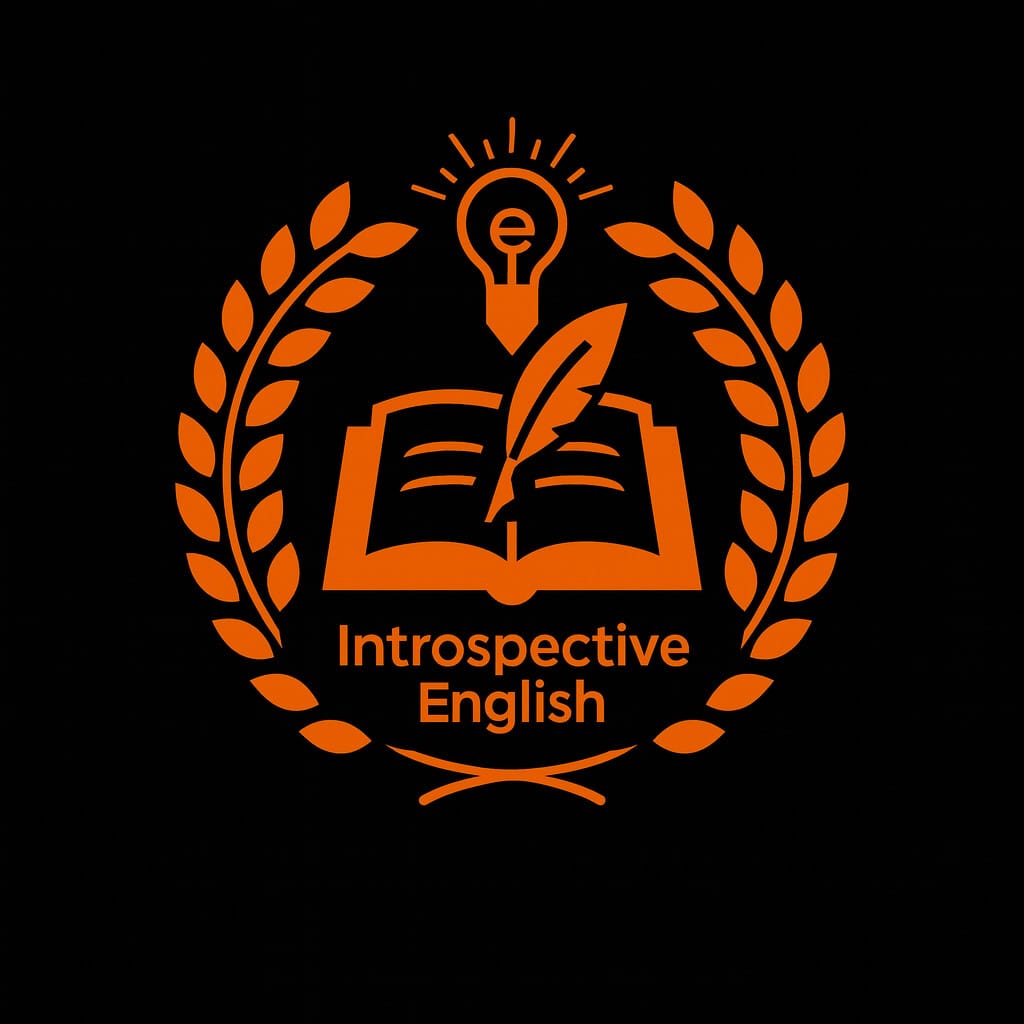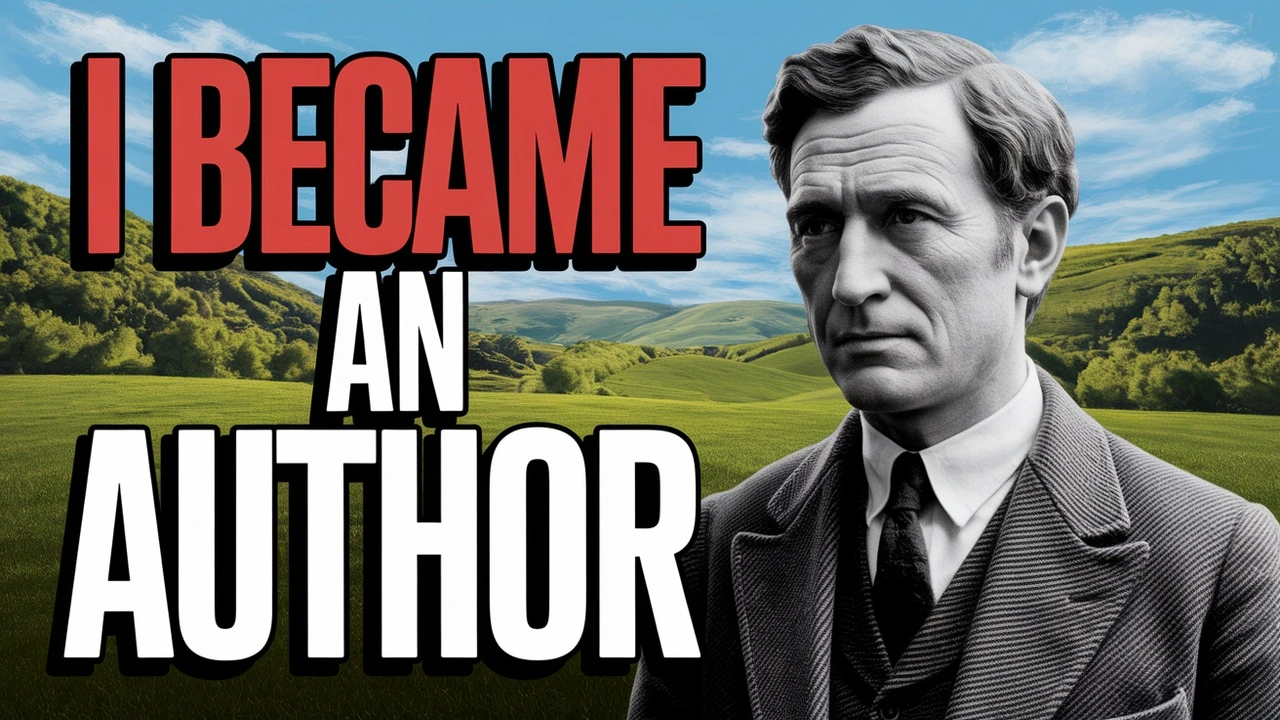

Prepare. Practise. Participate.

Prepare. Practise. Participate.

I Became an Author: A Journey to Success
About the Author
W. B. Yeats was an Irish poet, playwright, and politician. He played a leading role in the Irish Literary Revival and was awarded the Nobel Prize in Literature in 1923.
About the Essay
Everyone desires to achieve their goals, but doing so requires great struggle to overcome the obstacles on the path to success. W. B. Yeats also had to overcome many challenges before becoming one of the greatest poets and authors in Ireland.
The essay ‘I Became an Author’ contains autobiographical elements and inspires hope. It conveys that consistency and a strong desire can help one succeed. The text emphasizes that failure is not the end but a part of the journey toward achieving one’s goals.
This is a non-fictional prose written in the first-person point of view.
The theme of the essay revolves around Yeats’ journey from a school-going child to one of Ireland’s greatest authors.
It is an autobiographical prose that gives us glimpses of Yeats’ personal life and upbringing.
Word Meanings
poetic temperament – natural tendency to write poetry
psychological weaknesses – weaknesses related to mental state
humiliation – insult
Intermediate examination – exam at the higher secondary level
instinct – natural behaviour
carriage – horse-drawn vehicle
Spenserian stanzas – stanzas used by Edmund Spenser
crater – hole
valerian – a drug that calms animals
ailment – psychological sickness
constipated – difficulty in passing stool
affected – unnatural
Irving – Henry Irving who acted in the play Hamlet
brooding – showing deep thought
wildness – lack of discipline
plume – feather
pathetic – painful
merit – value or benefit
immense – extremely great
Trinity – refers to Trinity College
periodical – magazine published regularly
Bury – John Bagnell Bury
impulse – sudden urge
Gibbon – Edward Gibbon
merely – only
convictions – beliefs
embarrassed – worried
indignation – anger
pre-eminent – highly important
vigorous – powerful and healthy
henceforth – from now on
subscribers – people who subscribe to a publication
shilling – unit of currency
Sligo – town in southern Ireland
clumsy – unmanageable
sluggish – slow
heated thought – passionate thought
stiff – not flexible
stir – excitement
diction – choice and use of words in speech or writing
Chapter Highlights
In ‘I Became an Author’, W. B. Yeats shares his journey of becoming an author. As a student, he did not perform very well. His father remarked that he could not concentrate on anything that didn’t interest him. Yeats tried to write poems but initially failed. However, his friend Charles Johnson encouraged him to continue writing.
Yeats was deeply influenced by the remarks of his father and Charles Johnson.
He spent a lot of time selecting natural words and eventually succeeded in expressing himself naturally.
At the age of eighteen or nineteen, he wrote a pastoral play influenced by Shelley and Keats. His friend showed the play to Trinity undergraduates, who published it in a political and literary periodical known as the Dublin University Review.
Summary
W.B. Yeats’ “I Became an Author”: Tracing the Journey of a Literary Giant
W.B. Yeats’ autobiographical essay “I Became an Author” offers a candid look into his journey from an uncertain schoolboy to one of Ireland’s most revered literary figures. Through a first-person narrative, Yeats reflects on his early struggles, mistakes, and eventual growth as a poet and author, providing valuable lessons for aspiring writers.
Early Struggles and Unfocused Academic Life
Yeats begins by admitting that he had little interest in academic subjects and struggled to focus in school. His father often remarked that he was unable to pay attention to anything that didn’t captivate him. Despite an early passion for writing poetry, Yeats acknowledges that the path he took was not ideal. In fact, he cautions young writers not to follow his example, admitting that his early approach to writing lacked direction and skill.
The Influence of Charles Johnson and Early Literary Efforts
Encouraged by his friend Charles Johnson, Yeats continued to write, gradually gaining confidence in his abilities. His first significant work, a pastoral play titled “The Island of Statues,” written when he was eighteen or nineteen, was influenced by the works of Shelley and Keats. Although the play lacked literary merit, it was published in the Dublin University Review and marked his entry into the literary world.
Literary Growth and Recognition
Through perseverance, Yeats eventually honed his craft and developed his unique poetic voice. His recognition grew, particularly with the publication of “The Wanderings of Oisin,” which further established him as a significant literary figure. Influential figures like John O’Leary and Standish O’Grady supported Yeats, helping to shape the Irish literary and intellectual movement and guide his literary aspirations.
Key Lessons from Yeats’ Journey for Aspiring Writers
Yeats’ essay presents a powerful message: failure is an essential part of the journey, and success is achievable with dedication, hard work, and a willingness to learn. His openness about his flaws and false starts adds authenticity to the narrative, making it both a warning and an inspiration for young writers. His story is a testament to the idea that growth in literature comes not from immediate success but through learning from one’s mistakes and persevering through challenges.
Analysis of W.B. Yeats’ “I Became an Author”
W.B. Yeats’ “I Became an Author” offers a unique, introspective look into the formative years of one of Ireland’s most celebrated poets. The essay explores Yeats’ personal growth as a writer, offering valuable insights into the early struggles, influences, and reflections that shaped his literary career. Through his candid, first-person narrative, Yeats not only reveals the intricacies of his own creative journey but also provides timeless lessons for aspiring writers and anyone interested in the process of literary development.
Early Struggles and the Quest for Identity
One of the most striking elements of Yeats’ autobiographical essay is his frank acknowledgment of his early academic struggles. He begins by admitting that he was not an ideal student, finding it difficult to engage with subjects that didn’t immediately captivate him. This self-awareness is significant, as it reflects Yeats’ recognition of his non-conformity in both educational and social contexts. His father’s remark that he could not focus on anything that didn’t interest him hints at Yeats’ lifelong tendency to pursue his passions rather than follow conventional paths. This early disinterest in academics, while it may seem like a setback, forms the backdrop for his later success as a poet and author. It serves as a reminder to young writers that a lack of conventional success in other areas does not preclude greatness in creative fields.
Influences and Early Literary Efforts
Yeats’ formative years as a writer were marked by influences from poets like Shelley and Keats, as well as encouragement from his friend Charles Johnson. These figures provided the support and inspiration Yeats needed to continue developing his writing, despite initial missteps. Yeats’ first significant work, “The Island of Statues,” reveals the immaturity and lack of literary depth that characterized his early attempts. However, the fact that the play was published in the Dublin University Review indicates that Yeats was, even at a young age, beginning to make his mark within the literary world. This reflects an important theme of Yeats’ essay: success is not instantaneous, and every writer must face the challenge of refining their voice and skills. For Yeats, his early work lacked the sophistication of his later masterpieces, but it was a crucial step toward discovering his true literary self.
Development of Poetic Voice and Literary Growth
As the essay progresses, Yeats discusses how his perseverance and reflection helped him develop his distinct poetic voice. The publication of “The Wanderings of Oisin” marked a turning point in his career, signaling his emergence as a significant literary figure. The essay highlights how the influence of key supporters like John O’Leary and Standish O’Grady shaped not only Yeats’ poetic direction but also the broader Irish literary and intellectual movement. These figures guided Yeats, helping him find his place in a world that was becoming increasingly focused on Irish identity and culture. The support of such influential mentors is a reminder that no writer achieves success alone; collaboration and mentorship play essential roles in shaping a writer’s trajectory.
A Lesson in Perseverance and Growth
One of the most powerful aspects of Yeats’ essay is the emphasis on perseverance in the face of failure. Yeats is upfront about his early mistakes and the false starts he encountered on his journey to becoming a recognized author. This transparency is a vital message for young writers who may feel discouraged by their own struggles. Yeats’ journey is proof that failure is an intrinsic part of the writing process, and rather than being an obstacle, it serves as a stepping stone toward success. His openness about his flaws humanizes him, allowing readers to relate to his experiences and understand that growth in literature—and life—comes through reflection, learning, and determination.
Conclusion: A Timeless Message for Aspiring Writers
“I Became an Author” is a deeply personal and reflective essay that offers invaluable insights into the evolution of one of the greatest poets of the 20th century. Yeats’ willingness to reveal his early failures, coupled with his eventual triumph, provides an inspiring narrative for aspiring writers. The essay reminds readers that the path to literary success is rarely linear. Instead, it requires patience, resilience, and the humility to learn from one’s mistakes. Yeats’ journey is a testament to the idea that even the most celebrated authors start with uncertainty, but through dedication and hard work, they can overcome challenges and refine their craft to achieve greatness.
Frequently Asked Questions (FAQ)
1. What makes I Became an Author an autobiographical essay?
The essay I Became an Author is considered autobiographical because W. B. Yeats narrates his personal experiences, challenges, and influences on his journey to becoming a writer. He reflects on his school life, literary failures, and encouragement from mentors and friends, providing insights into his real-life transformation.
2. What role did Charles Johnson play in Yeats’ literary journey?
Charles Johnson, Yeats’ close friend during his school years, played a crucial role in boosting his confidence. He encouraged Yeats to read his poetry aloud and appreciated his efforts, which helped Yeats continue pursuing literature despite early failures.
3. Why is The Island of Statues important in Yeats’ career?
The Island of Statues was Yeats’ early pastoral play written at the age of eighteen or nineteen. It marked one of his first published literary works, appearing in the Dublin University Review. Though not of great merit, it was a significant step in establishing his identity as a writer.
Related Post-I Became an Author by W. B. Yeats-Questions and answers